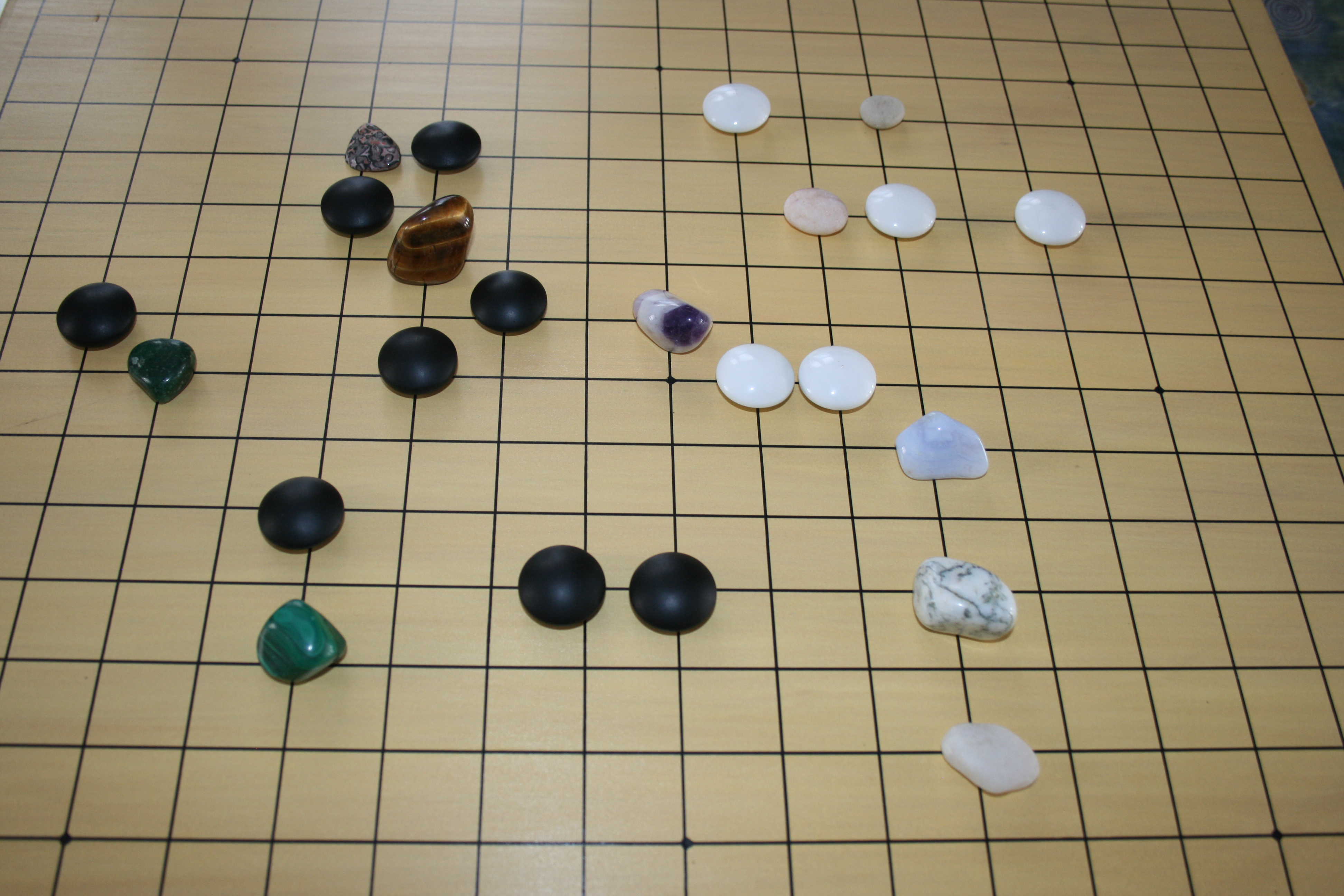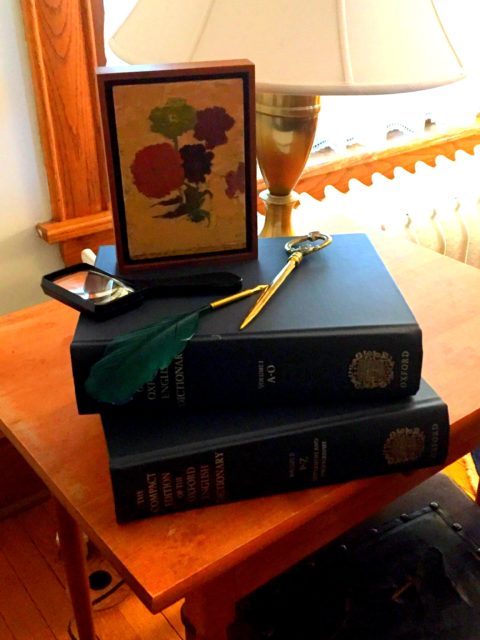Half-Moon Set
for William Shakespeare
I Oxford English Dictionary
Sir James Murray, caught fast in webs of word,
sought the earliest spinners of our pages.
You, Will, our most daring, can still be heard
in hundreds of words you gave to the ages.
I recall that long table holding green,
heavy volumes in the main library
where I first pondered: What did Falstaff mean
by “dwindle?” In tiny print, the O.E.D.
cited you as coiner. From Scottish, “dwine,”
(“to waste away, to fade”) you gave a twist,
conjoined it to “kindle,” and made new wine
with a flick of your vintage plume, your wrist.
Thank you for “Zany.” “Green-eyed.” “Howl.” “Moonbeam.”
“Grief-shot.” “Honey-tongued.” “Madcap.” And “academe.”
II Tinkerer’s Damn
Sometimes it’s finding the right word. Sometimes
it’s making it. Fit an old stem with ends
we know. Solder nouns onto bright verbs. Rhymes
and rhythm and thought give old words twists and bends
with ease. They please us, these shiny new toys
cobbled and seamed, buckets and kettles sturdy
yet handy, able to transport vast joys,
woes, or curses without being wordy.
In this sublunary world, can we know
where perfection exists or if we make it?
Poets, anyhow, keep tinkering under moonglow,
willing to be fooled, or to fool, or to fake it.
Our half-dark, half-light moon—inconstant sphere—
urges whatever it takes to make things clear.
Leslie Schultz
Yesterday, a friend asked me what makes a poem a poem, and I could think only of partial answers to that keen question. This morning, I was lucky enough to be awake when the half-moon set in the early hours of one of the high holidays on my calendar, Shakespeare’s birthday, so I am thinking about what I have received from Shakespeare’s poetry–and, by that, I mean all of his inventive language whether crafted in sonnets or for the stage. I realize that it is the exhilaration of his verbal dexterity (marrying sound and sense with flair) and his daring in creating new (or new-ish) words when the one he wanted did not exist…His converting, disconcerting, diverting achievements–at the level of one word at a time–in service of the sonnet, the scene, or the play. That inventiveness gives us all new raw material and new license to dismantle and reassemble language.
We can’t know exactly which late April day on which William Shakespeare was born in 1564, only that it was near and before the recorded day of his baptism on April 26. (Since he died on April 23, 1616 there is a fitting symmetry in celebrating his birth on April 23–a kind of calendrical couplet encapsulating the shape of his work and life, like the way he chose to conclude the sonnets he wrought.) Similarly, we cannot know exactly how many words he invented on the spot and how many he simply seized on, used effectively and memorably, and is now credited as their coiner. Even conservative estimators, though, acknowledge more than one thousand “neologisms.”
I learned the term “neologism” during a magical undergraduate year when I studied Shakespeare’s canon at the University of Wisconsin under Professor Standish Henning. He directed students through the portals of Memorial Library, past the carved dictum, “The truth will set you free,” and into the Reference Room toward the incomparable resource of the Oxford English Dictionary. (As soon as I could afford it, after graduate school, I purchased my own copy of the condensed print version, complete with magnifying glass.– I didn’t used to need that, but now it comes in handy!–and I have yet to fulfill my intention of acquiring a copy of Caught in the Web of Words, the biography of Sir James Murray, chief editor of the Oxford English Dictionary,by his granddaughter, K.M. Elizabeth Murray, but it is comforting to know that pleasure shimmers before me.)
Coming back to my friend’s question, I think the essence rests in the desire to make something new, to enrich the given language in some way. “Poet,” I understand, comes from the Greek word for “Maker.” I know I am inspired by what I have read and heard–surely millions of words–and by such delightful local twists as Northfield’s Sidewalk Poetry motto “Make Your Mark” and Paula Grandquist’s coinage for the name of her show on KYMN, “ArtZany.” (Tune in this Friday at 9:00 a.m., by the way, to hear Paula talk with this year’s winning poets and hear them read their work–or find it on the KYMN online archive after Friday, April 27, 2018.)
What do you think? What is the essence of poetry? How do you know something is a poem? Have you recently invented a word or phrase? Is there one you wish you had? (I wish I could take credit for “Snafu,” “Kludge,” and “Glitch.”)
As Paula says, “Enjoy your imagination today.” Best, Leslie Schultz
Check out other participants in the NaPoWriMo Challenge!




